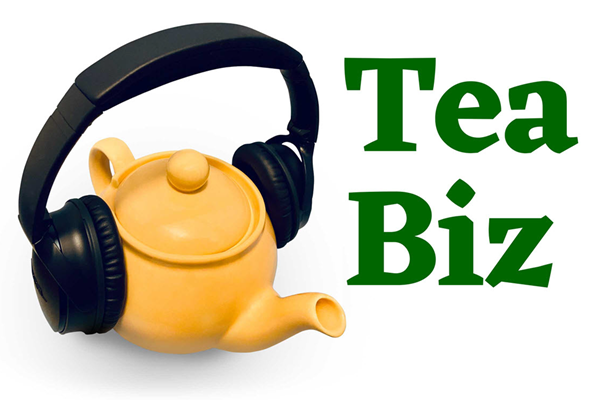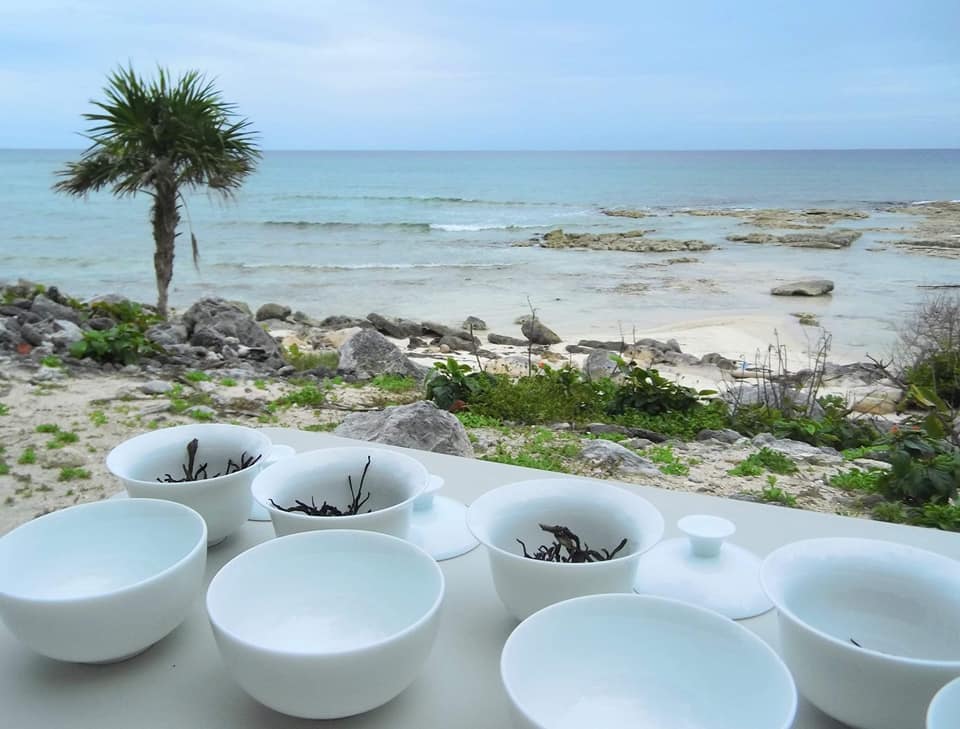
Listen to the Tea Biz Podcast for the week of February 05
Here are the News Headlines

• Shipping container shortage threatens timely tea deliveries
• Kenya’s High Court has ruled against unions seeking to prevent mechanical harvesting of tea
• Bombs Away… Tea bombs encased in confectionary get rave reviews online
Features
This week Aravinda Anantharaman speaks with Narendranath Dharmaraj who has spent nearly five decades in plantation and agribusiness management. In the conversation around the viability of the Indian tea industry and in particular the outdated nature of the plantation model, Dharmaraj has proposed an alternative where he recommends that estate owners distribute land-ownership in favor of the plantation employees and buy back the raw material through a co-operative. Here, we speak to Dharmaraj on how this model will address the issues of labor and wages that have hit an impasse. Read more…

Traveling to origin is no long practical, yet tea retailers must still learn tasting skills essential to selecting fine tea. Dan Robertson, founder of the International Tea Cuppers Club, has constructed an international tea training center in Mexico where tea masters share their knowledge during a week-long immersion program. The soon-to-open facility is on the Riviera Maya near the Mayan Ruins, south of Cancun and Cozumel.
News you Need to Know
Shipping container shortage threatens timely tea deliveries
The cost of shipping a container of goods increased 80 percent since November and nearly tripled in 2019. One third of the containers transiting the world’s 20 largest ports failed to ship on schedule. Unlike grains, tea is not shipped in bulk. Depending on its density, 10 to 12 metric tons of tea can be loaded into a 20-foot container.
Beginning last spring the pandemic shifted the normal shipping cycle leaving hundreds of thousands of empty shipping containers at destinations with no loads to return. In China and India, the shortage is acute. Bloomberg reports that in January India shipped less than a fifth of its normal volume of sugar. Responding to a 30 percent surge in orders for goods, last fall China offered top dollar for the return of empty containers. The strategy is working so well that coffee and rice are piling up at the docks in Thailand and lentils in Canada as shippers rush return containers instead of filling them with Asian-bound goods. Gradually equilibrium is returning with predictions that the shortage will abate in time for the first of the tea harvest shipments in April.

Biz Insight – Eliot Jordan, vice president of tea at Mighty Leaf Tea in California writes that he is “backing up orders by a month on anything that has to move on the ocean.” He says, “The problem is, as long as COVID is running rampant, all the forecasts I have are throwing darts in my basement with the lights off – sometimes it’s better to throw very few darts until the lights come back on.”
Kenya’s High Court has ruled against unions seeking to prevent mechanical harvesting of tea
The appeals court decision follows a 2018 ruling that Unilever Tea Kenya had the right to adopt new technology. The Kenya Plantations and Agricultural Workers Union sought a universal ban on tea harvesting machines.
Biz Insight – Kenya’s flatland tea farms are uniquely suited to mechanical harvesting, but planters have faced stiff opposition to mechanization since 2010. In 2018 workers led a strike in protest. Lower courts sided with workers initially but were overturned on appeal, a reversal that allowed planters to dismiss all who joined the boycott. During confrontations, several pieces of expensive harvesting equipment was destroyed. The expansion of mechanical harvesting (and subsequent loss of jobs) now appears likely.

Bombs away
Tea encased in confectionary sold as Tea Bombs are easily created in partnership with a local candy company or with the use of silicon molds in your own tea shop. Made with a shell of liquid sugar, the two-inch translucent spheres can be filled with tea leaves, tea bags and a variety of inclusions such as edible flowers, spices, and herbs. The bomb explodes as hot water is poured into the cup, lightly sweetening the mix. Bright colors, food-safe glitter and sparkles add to the fun.
Biz Insight – Nudge Coffee bars are an example of beverages sold as food. Ultra fine powdered roasted coffee beans are processed with cocoa butter into a shelf-stable paste similar to Nutella that can be molded into bars. The company’s candy coated coffee pellets resemble M&Ms and deliver caffeine in consistent doses. Natural grocer Sprouts reports a strong debut among coffee lovers.
https://teabiz.sounder.fm/episode/news-01212021
| ITunes | Spotify | iHeart Radio | Stitcher |
| Google Podcast | Amazon Podcasts | Tune In | Sounder |
Subtext
Avoid the chaos of social media and start a conversation that matters. Subtext’s message-based platform lets you privately ask meaningful questions of the tea experts, academics and Tea Biz journalists reporting from the tea lands. You see their responses via SMS texts which are sent direct to your phone. Visit our website and subscribe to Subtext to instantly connect with the most connected people in tea.
Subscribe and receive Tea Biz weekly in your inbox.


